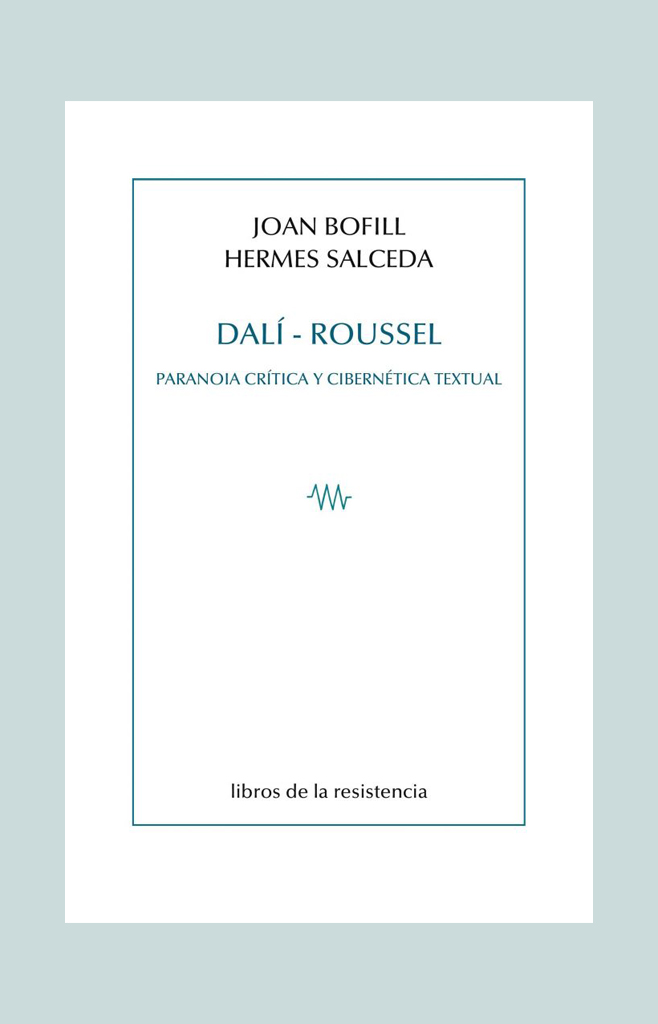Dalí – Roussel
Joan Bofill / Hermes Salceda
Dalí-Roussel
Paranoia crítica y cibernética textual
Joan Bofill – Hermes Salceda
LIBROS DE LA RESISTENCIA
Format / Formato: 13,5x21cm.
180 Pages / Páginas
Colección Paralajes 31
First Edition / 1ª edición: June 2022 / junio de 2022
ISBN: 978-84-15766-85-8
Price/Precio: 13 €
–
En 1974, en Nueva York, Salvador Dalí concibe Impressions de la Haute Mongolie: hommage à Raymond Roussel; es la última y más larga de sus películas y también una obra prácticamente desconocida, a pesar de que su director era ya, entonces, uno de los mayores genios de las artes del siglo XX. Dalí dedicó La Alta Mongolia al legendario y misterioso Raymond Roussel, un autor que le acompañó toda la vida, en el que no dejó de buscar inspiración. Pero ¿qué vio Dalí en el enigmático y racionalista extremo Roussel para que le acompañase hasta el momento de su muerte? ¿qué tienen en común la paranoia crítica daliniana y la cibernética textual rousseliana? En una aventura detectivesca, igualmente singular, el artista visual Joan Bofill ha reconstruido la historia del misterioso film daliniano y la ha plasmado en un documental.
Este libro es testimonio de un diálogo en el que Joan Bofill y Hermes Salceda, intentan contestar a esta pregunta. Los autores reabren, al hilo la relación de Dalí con Roussel, algunas de las cuestiones latentes tanto en la crítica literaria como en la crítica de arte: los límites de la libertad creativa, la relación entre ciencia y delirio, la oposición, demasiado fácilmente aceptada, entre el experimentalismo formalista y las exploraciones surrealistas.
Bofill y Salceda nos ofrecen la primera aportación consistente sobre el film más ambicioso de Dalí, la síntesis más acabada del traslado del método paranoico-crítico al cine y, a la vez, amenas reflexiones sobre maneras y procedimientos de llevar la imaginación humana a los universos más ignotos.
Press & Articles
2022
El País “Roussel-Dalí” by Adrià Pujol Cruells
Babelia “Arte: La creación tiene un precio político” by Anxo Rabuñal
Conferences
2022
Círculo de Bellas Artes, Madrid, SPAIN
Dalí-Roussel: paranoia crítica y cibernética textual

